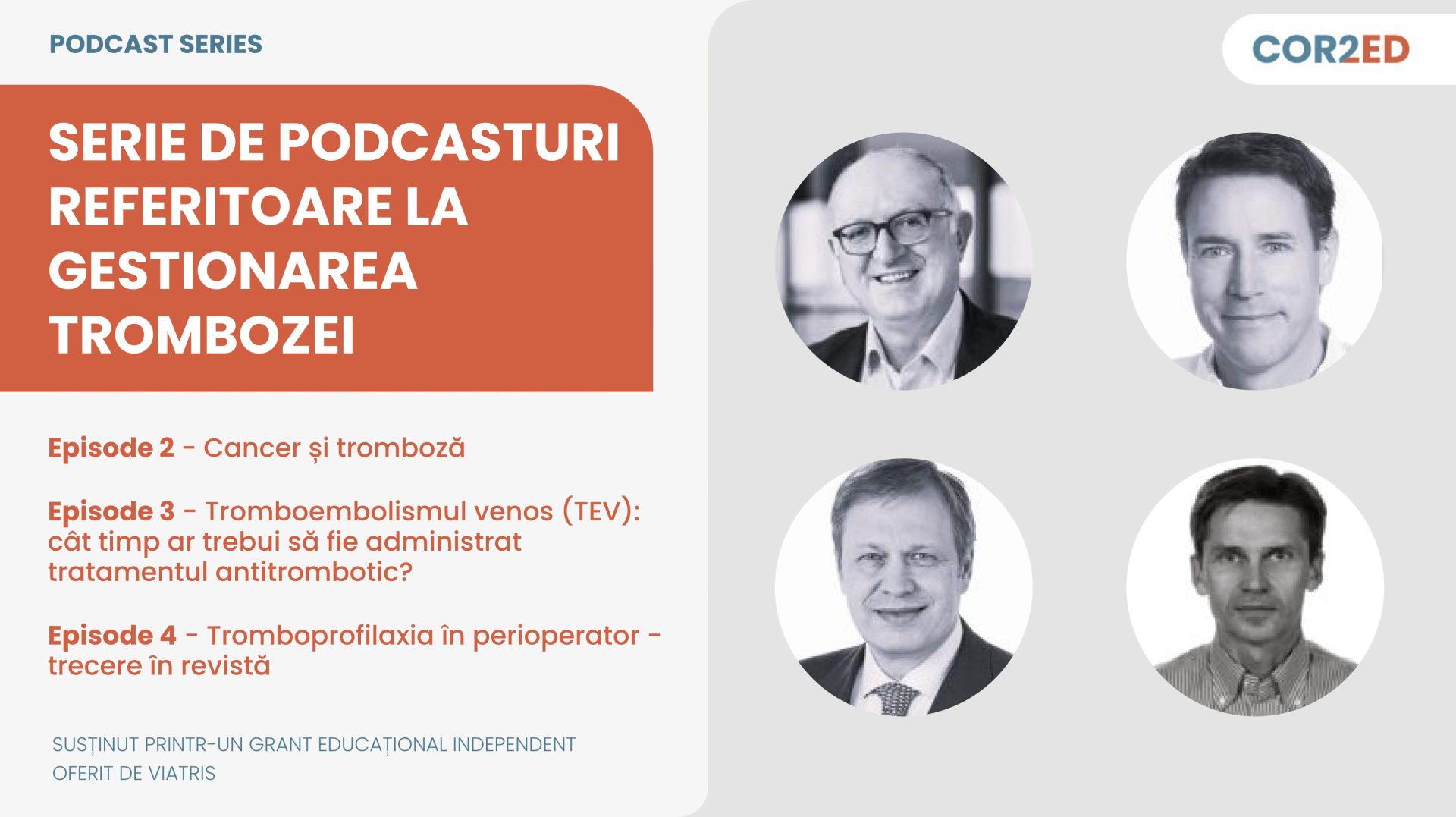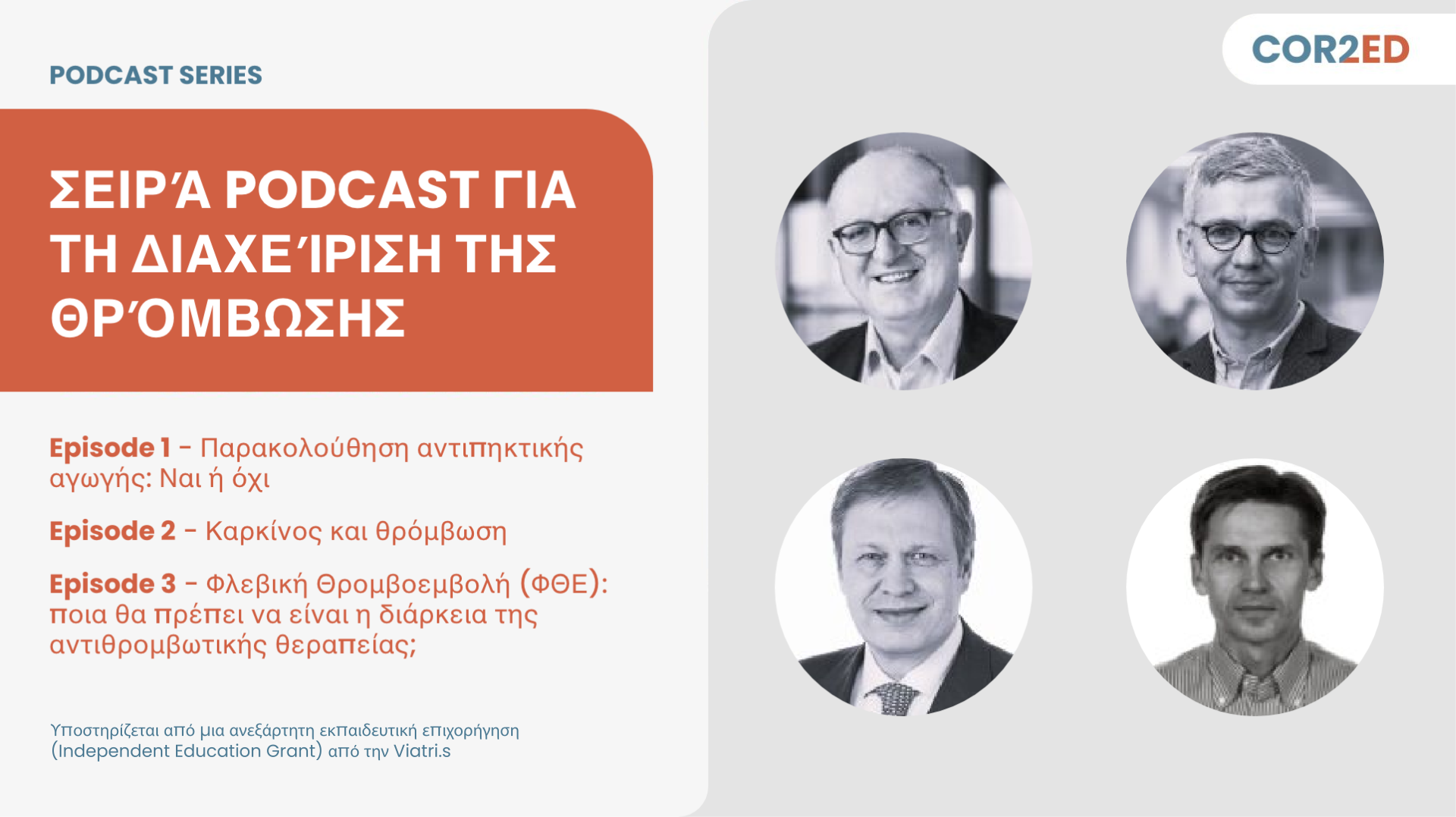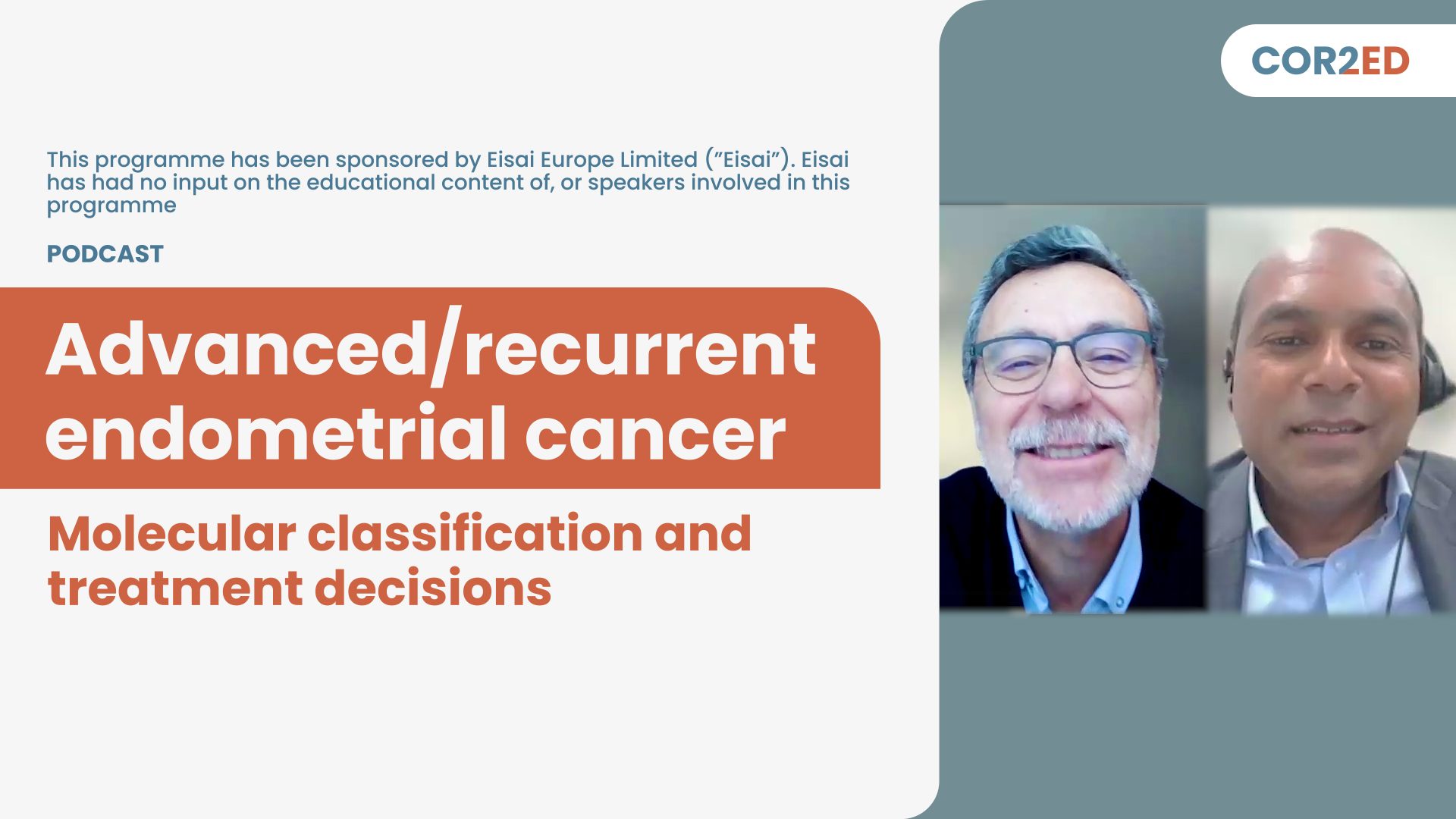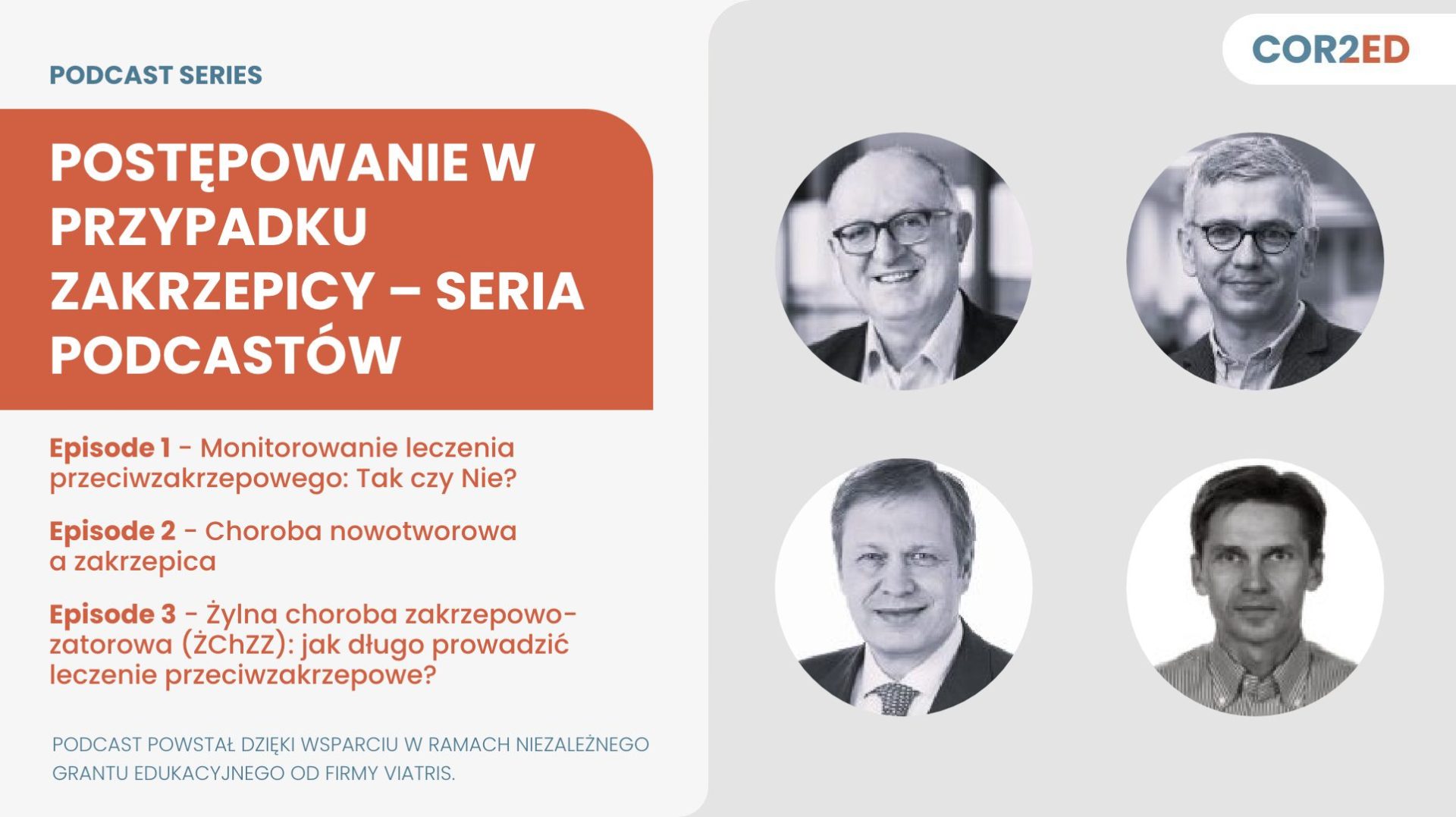Gynaecological considerations in Women with Bleeding Disorders
A HEMOSTASIS CONNECT podcast
Please note:
HEMOSTASIS podcasts are designed to be heard. If you are able, we encourage you to listen to the audio, which includes emotion and emphasis that cannot be grasped from the words on the page. Transcripts are edited for readability. Please check the corresponding audio before quoting in print.
HEMOSTASIS CONNECT is an initiative of COR2ED. This podcast is supported by an educational grant from Takeda. The views in this podcast are the personal opinions of the experts. They do not necessarily represent the views of the experts' organisation or the rest of the HEMOSTASIS CONNECT group. For experts' disclosures on conflict of interest, please go to Hemostasis on www.COR2ED.com.
Dr Sarah O’Brien
Hello and welcome to today's podcast where we will be talking about gynaecologic considerations in women and girls who have an underlying bleeding disorder. My name is Sarah O'Brien, I am a paediatric haematologist. I work at Nationwide Children's Hospital, which is in Columbus, Ohio, in the United States. And I work in a multidisciplinary clinic for girls and women with underlying bleeding disorders. And I also serve as a haematologist for our teen and pregnant clinic here at the hospital. I'm joined today with Dr Homa Ahmadzia, and can you please introduce yourself, Homa?
Dr Homa Ahmadzia
Sure. My name is Homa Ahmadzia, and I'm a maternal and foetal medicine physician at George Washington University, and I co-run the pregnancy haematology clinic that we have for women, either with preconception pregnancy issues or postpartum concerns. And I also have an interest in women with bleeding disorders from a research perspective, looking at tranexamic acid for prevention of postpartum haemorrhage.
So I'm so delighted to be here with you today, Sarah. In this episode, you and I will be discussing the two sides of the coin regarding women with bleeding disorders. These patients may have uterine bleeding due to their bleeding disorder, but they also can be gynaecologic causes for heavy bleeding.
So, Sarah, can you first share your thoughts on what my colleagues in obstetrics and gynaecology should be aware of? How can we recognise a bleeding disorder in our patients?
Dr Sarah O’Brien
So I think that gynaecologists are so good at recognising heavy menstrual bleeding, it's something that you do frequently in your practice. So I find that my gynaecology colleagues are very familiar with the signs to watch out for, such as patients who are consistently having more than seven days of bleeding with their menses, patients who are consistently soaking through products in less than 1 or 2 hours, and patients who pass a lot of large clots. I think those are the commonly known warning signs.
I think where there's more of a knowledge gap is once you have a patient with heavy menstrual bleeding, what are clues within that menstrual history that could signify a higher risk of an underlying bleeding disorder? So for that, I think of items such as, did the patient have heavy menstrual bleeding since menarche? So that is one question that we ask. Have they had iron deficiency or iron deficiency anaemia as a result of their heavy menses? A big clue for the gynaecologist should be if the patient is not responding to the therapies that you typically use, that would be another red flag for a possible bleeding disorder. And then finally, if the patient has other bleeding symptoms, such as a history of nosebleeds or a history of bleeding with surgery, or if there's a family history of bleeding, those would all the clues for me that there might be an underlying bleeding disorder.
One of the things I wanted to talk with you about today, Homa, was that as a haematologist when I'm taking care of patients with heavy menstrual bleeding, I always have bleeding disorders at the top of my mind because that's my area of speciality. But I know that many of the patients referred to me with heavy menstrual bleeding will turn out not to have a bleeding disorder. And I also know that my patients with bleeding disorders can also have a gynaecologic cause for their bleeding. So can we flip the coin a little bit? And can you tell me when you're seeing a patient with heavy menstrual bleeding, what are the clues for you that there may be gynaecologic or non-haematology pathology going on?
Dr Homa Ahmadzia
Yeah, thanks for that question. So I often will ask them a little bit more in terms of the frequency of the bleeding patterns and is it associated with menses or in between menses? I will characterise a little bit more in terms of how much they're using the pads, for example, or tampons and frequency. I think that will definitely help to evaluate. And then get imaging to additionally help to further sort out, is this the gynecologic cause? Often we rely on ultrasound as a first imaging modality to look at things in the uterine cavity that might be a source, like fibroids, which are really common in women. Sometimes there's a family history, sometimes there's no family history, and women often aren’t very symptomatic except for heavy menses. Other clues on ultrasound you might see is if they have enlarged cysts, which could be related to endometriosis or endometriomas, and sometimes those can present with heavy, or sometimes painful cycles or dysmenorrhea. Other uterine anomalies, which are a little bit more advanced in terms of imaging modalities like either MRI or saline-infused sonohistograms would be looking for things like endometrial polyps, which can also cause irregular or heavy bleeding at times. So those are some of the suggestions.
Dr Sarah O’Brien
Have you had patients in your practice that you can recall that had a bleeding disorder and a gynaecologic issue going on at the same time?
Dr Homa Ahmadzia
That's a great question. I can think of one case that, she didn't quite have that specific combination of conditions, but she was worked up for a bleeding disorder because she presented so early. It was an adolescent in my training in residency and she had been worked up for a bleeding disorder, was found not to have that, but was refractory to medical therapy and so despite being on oral contraceptives and additional therapy, she ultimately needed surgical management and had a uterine hysteroscopic resection of a myoma, and had definitive management with that.
Dr Sarah O’Brien
So, I think that's a good teaching point for me because I know sometimes our haematology workups can take a really long time to complete, especially if we're looking for some of those more rare disorders. So, for me, that's a good example of if someone's really refractory to medical management, you know, don't delay the gynaecology referral till we get all of our labs done.
Dr Homa Ahmadzia
Yeah, that's a great point. And you gave so many good clues on what to look for early on. I wanted to say that was really helpful.
Dr Sarah O’Brien
And I think for me, I can think of one or two examples where I've had patients that had an established bleeding disorder and were experiencing heavy menstrual bleeding and we prescribed oral contraceptives and it helped with their heavy menstrual bleeding, but it didn't help with their dysmenorrhea at all. And actually, when I saw this patient in follow up, her dysmenorrhea was even getting worse. And so I sent her to my gynaecology colleague. And it turned out that she also had endometriosis. And I think one of the things I tell my families… Because sometimes families will present to me and say they don't have any family history of bleeding, but they have a very strong family history of endometriosis, which for us can sometimes be a clue that there is an underlying bleeding disorder in the family.
Dr Homa Ahmadzia
Yeah, that's very true. And speaking of specific bleeding disorders and what I think of in pregnancy or postpartum, one thing I pay particular attention to for example, in women who might have von Willebrand disease is: how is their bleeding profile in the first week or two weeks postpartum? Because sometimes they might not have a haemorrhage right at delivery, but often the factors are going a lot lower at that time period. So I don't want to have a routine six week follow up for them. I kind of want to think of them a little bit more closely in surveillance and give them more guidance about what's normal bleeding postpartum.
So Sarah, when I have a patient with a gynaecologic disease, for example, like endometriosis, who also has a bleeding disorder, is there anything I should be particularly aware of in my treatment plan?
Dr Sarah O’Brien
So I think of that on two levels: how can we help with the medical management and then how can we help with the surgical management? So I would say with the management of the bleeding, certainly the hormonal therapies that you are using are going to be the first line of treatment for that patient. But sometimes we can be helpful from the haematology side by adding adjunctive therapies. So for some patients that might be an anti-fibrinolytic like tranexamic acid. For some of our patients with severe bleeding disorders, they may also need factor replacement to manage reproductive bleeding. And then we also want to be involved in any surgical procedures. For example, I know that even to diagnose endometriosis involves going to the operating room to take a look under anaesthesia. And we want to make sure that we're involved so that we can help prevent any excessive bleeding during or after the procedure. So again, that's often a time when we will recommend an anti-fibrinolytic during that time.
And then I think the last thing is as haematologists, we're always talking about iron deficiency and looking to make sure that all of our patients with reproductive bleeding are at risk for iron deficiency and anaemia, so always looking for that as well.
What would you add from the gynaecologic perspective for management of a patient with endometriosis and a bleeding disorder?
Dr Homa Ahmadzia
Yeah, I think an interesting point comes up here when we're thinking especially about adolescent women who are, you know, get diagnosis sometimes early for a bleeding disorder, is a general reluctance from sometimes the obstetrics gynaecology community or even the haematology community to consider oral contraceptive therapy. Even though it's not the primary reason for the medical management, it can have huge secondary benefits. And I think that's what's key to stress is that it's a secondary benefit. And I know some patients or providers, if ultimately, they're not comfortable, then certainly don't forget about tranexamic acid as an alternative. I think having no therapy is unfortunate and will likely lead to patients coming back into the emergency room with, you know, severely anaemic and needing transfusions. So that is what I would think of.
And I think you made such a great point there about the iron deficiency anaemia. And not only thinking about it, I think is often about it in pregnancy, or preconception or when they're managing for their fibroids or other conditions. How do we optimise women really to get into a pregnancy with maximal iron stores?
Dr Sarah O’Brien
Absolutely. I would say two of the concerns I hear a lot from families when I'm talking about hormonal therapy for a young adolescent, are: they're worried that it's going to cause infertility to be on a hormonal medication at that young age. The other concern I hear a lot is that it will increase their risk of breast cancer. Can you talk about those concerns from families?
Dr Homa Ahmadzia
Yeah, sure, you know, the concern about infertility is not really shown to be true in the evidence. We have lots of women who are on either oral contraceptives or IUDs and I hear that concern as well. Sometimes it can affect your cycles where after you come off the therapy, they can be a little bit irregular in that time period, but it has not really been proven to impact long term fertility.
The breast cancer risk, I think, is something I would pay attention if they had a strong family history, for example, maybe in breast cancer. But when we're talking about risk benefit balances of a therapy that will prevent someone to be severely anaemic and maybe enter depression and, you know, have life-altering kind of situations and you're talking for a year or two of therapy that is not going to increase dramatically of any kind of breast cancer risk from that perspective.
Dr Sarah O’Brien
And I find that families are actually often unaware of the potential protection against other types of female cancers, such as endometrial cancer with contraception use.
Dr Homa Ahmadzia
Yeah, very good point.
Dr Sarah O’Brien
I think also when you were talking about oral contraceptives, it also reminded me. Another common issue I see is if somebody's seen a gynaecologist who maybe doesn't have a lot of familiarity with adolescence or taking care of patients with bleeding disorders, sometimes a patient will come to me and they're on an extremely low dose of an oral contraceptive and they're still bleeding and the family thinks that they have failed this therapy. And a lot of times what we can do is just look at what they're on and adjust it to what I would consider a standard dose and make sure to tell the family: we're not using a high dose, we're using the standard dose. And often a change like that can really help improve bleeding. Do you see that ever?
Dr Homa Ahmadzia
Yeah, that's a really great point. I think that you're going to find in the general community, people do have different levels of comfort, right? And so when they think, you know, if they're not used to seeing adolescents, they think they might just have to adjust their standard dose to accommodate for that population and that difference in terms of body size and so I wouldn't be surprised if that is happening.
And I think having more resources like for example, this podcast and more professionals like yourself who are very comfortable even with the gynaecology kind of adjustments will help the general population.
Dr Sarah O’Brien
So I think our conversation so far has talked about all the different ways that our specialties collaborate. Can you talk a little bit about how this plays out for you in your daily practice in terms of your collaboration with other specialties?
Dr Homa Ahmadzia
Yeah, I think this is really critical. I'm fortunate to be at a place where we do have that ability to work with the haematologists that are in our pregnancy haematology clinic, where if I see women either pre-conception or during pregnancy or postpartum, where we need to ask for support to, you know: which diagnostic tests would be do as follow up? Or if they have something abnormal, what should they do and consider for their future?
And then in addition, I think the haematologists is a critical part to this. But often in pregnancy we look to the O.B. anaesthesiologist and transfusion medicine specialist to kind of have this really multidisciplinary approach to considerations around, like epidural at the time of delivery. Are they candidates? Are they, you know, what thresholds do we want to be above for certain factors for their candidacy for that? I think those are very common questions. And some patients and future mums have really strong opinions about it, that they do or don't want it and how we support them in that? And so I think that it's extremely critical to work with the team.
Dr Sarah O’Brien
Yeah, I'm also fortunate to be able to work in a multidisciplinary clinic. Our clinic includes a haematologist and an adolescent medicine specialist, but we also have, at our children's hospital, a fantastic group of paediatric adolescent gynaecologists who have become really well-versed in taking care of our patients, which is just wonderful.
I think another thing I appreciate from my gynaecologist: not all patients are followed in our multidisciplinary clinic if they're following along with me and a gynaecologist, sometimes our gynaecologists are so excellent at managing their heavy menstrual bleeding that they forget that they have a bleeding disorder. So I really appreciate that my colleagues remind them to come to their annual visit with me, and that's important so that I, as their haematologist, can continue to be involved in their medical care. Be familiar what's going on so that when things come up like dental procedures or surgical procedures, we're not rushing to get them in for surgical clearance. I know them well, and we just make a plan right from there without needing an extra visit. And then certainly the families will also reach out to me later in life with their first pregnancy, and I'm able to help then to get them connected to the appropriate resources for that planning.
Dr Homa Ahmadzia
Yeah, that sounds great. Yeah. I think from one thing forgot to mention earlier, with the iron deficiency, we often work with our haematology colleagues too because the infusions do happen through our haematology department when we have women who are pregnant and have iron deficiency. So that's a critical part to this. And I will say, I think having that maximised pre-conception and during pregnancy is so important not only for the mum but also for the growing foetus and future newborn.
You know, one thing you just talked a little bit about, Sarah, I wonder if you can expand upon is what should I be aware of in women with bleeding disorders who need gynaecologic surgery, specifically?
Dr Sarah O’Brien
Sure. So many of our recommendations will apply kind of across the board to women with a variety of bleeding disorders. As I mentioned earlier, we'll often recommend an antifibrinolytic before the surgery and after the surgery for a specified time period, depending on the risk of bleeding with that particular procedure. For some of our patients, we may also want to use desmopressin for our von Willebrand patients. Some of our von Willebrand patients or haemophilia patients may need factor replacement as well for the procedure.
We may sometimes recommend overnight observation as well, even if it's not a procedure that would normally require that. I can think of a patient this week having a gynaecology procedure that the gynaecologist and I agreed because of the patient's distance from the hospital. It just made a lot more sense for her to spend the night on our service and send her home the next day.
And then we also have a large population of patients who have bleeding due to joint hypermobility. They're a little bit different because they can also have issues with wound healing. So I make sure that my surgical colleagues are aware of those issues as well, and so they may want to proceed differently in terms with how they're placing stitches or how they're following along with the stitches and other considerations.
Dr Homa Ahmadzia
Yeah, those are great tips, thanks.
Dr Sarah O’Brien
So this has been a great discussion today, Homa, thank you so much. I'm trying to think of some of our takeaways from the discussion. I think for me, the items that were highlighted as is just all of the different ways in which haematology and gynaecology intersect, that there are haematologic and gynaecologic causes of bleeding, and that one patient can have more than one cause. So we never want to put our blinders on when we're taking care of these patients. And I think just the importance of ongoing collaboration, both within the clinic setting and also outside of our multidisciplinary clinics, to provide the best care for these patients.
Dr Homa Ahmadzia
Yeah, I agree with you entirely. I guess one thing reflecting, I said this before, but I think the iron deficiency across a lifespan, you know, when we're thinking even from adolescence to young adulthood to later in life and being proactive about management and therapy can be so critical if people aren't responding to oral, for example, going to IV iron and considering it in pregnant women. And I will refer to the other podcast we have about that for more information for those listeners who want details.
It was so great, thanks, Sarah. It was great to talk with you today. Really appreciate it.
Dr Sarah O’Brien
Thank you. You as well.
This HEMOSTASIS CONNECT podcast was brought to you by COR2ED Independent Medical Education. For more information, please visit www.COR2ED.com and select Hemostasis.

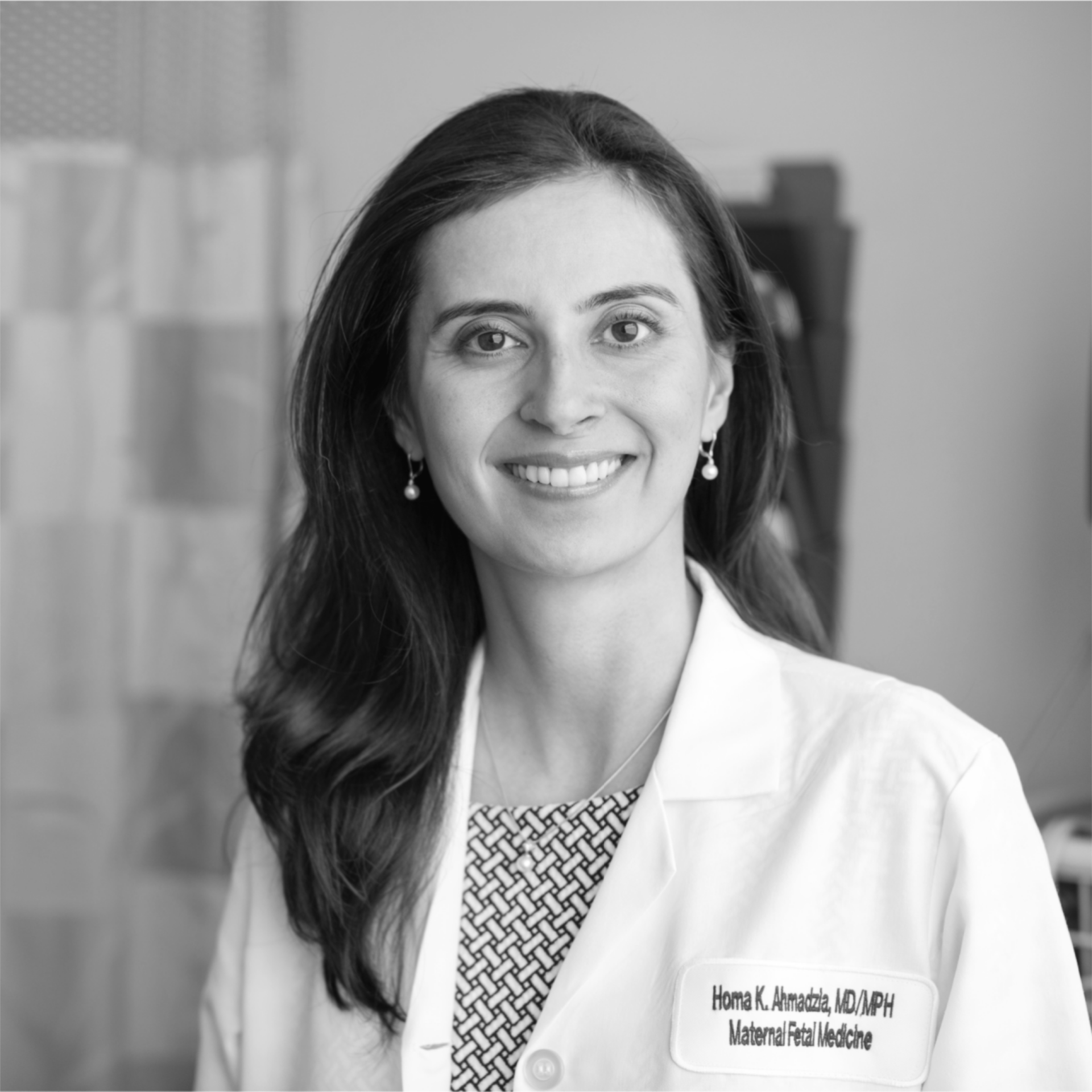


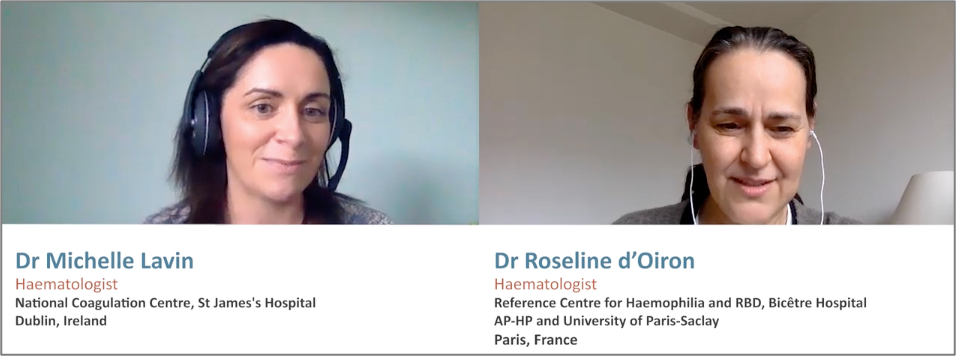
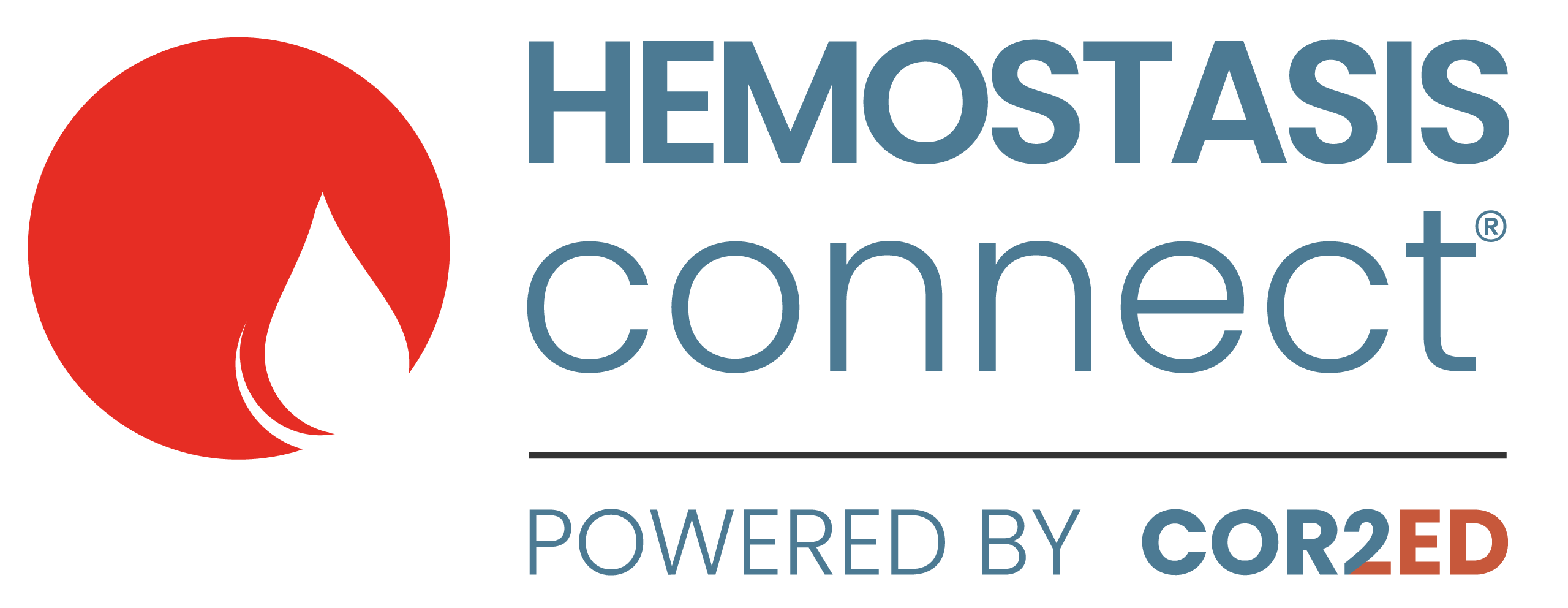
 Downloadable
Downloadable 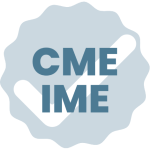

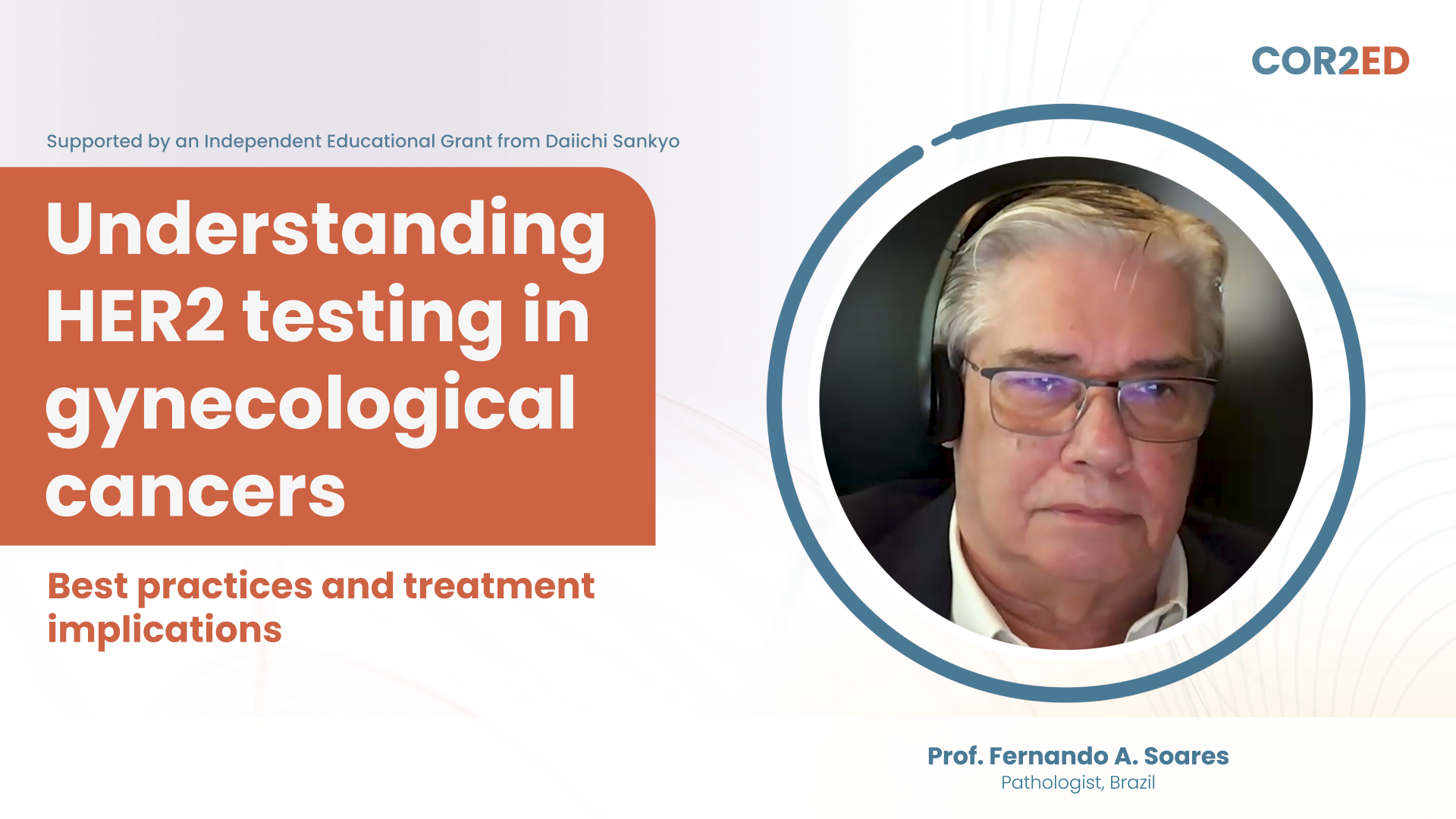
 8 MIN
8 MIN
 Feb 2026
Feb 2026 

